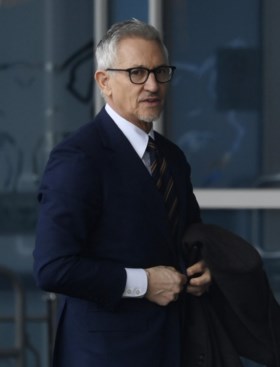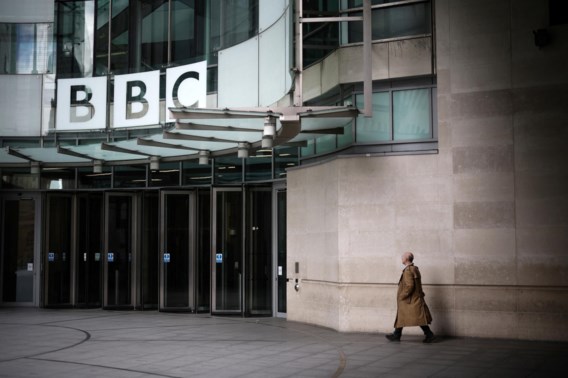The BBC is in turmoil over a conflict with football presenter Gary Lineker. He criticized the government’s immigration policy and was banned from appearing on screen. This led to a mutiny among the other presenters, provoked a reaction from the Prime Minister and forced the Chief Announcer to defend his position.
The BBC was forced to cut some of its sports coverage on Saturday as broadcasters refused to work in solidarity with Lineker. It happened after the broadcaster tried to defend her impartiality by removing Lineker from the tube over some comments on social media.
Lineker, the former England national football captain, the BBC’s highest-paid broadcaster and the face of football show Match of the Day, has been suspended over his criticism of Britain’s immigration policy. Critics of Lineker’s suspension say the BBC has succumbed to government pressure, sparking a fierce debate about the NBC’s impartiality.
The BBC’s director-general, Tim Davie, said on Saturday that he had no intention of resigning over the issue. “Both the BBC and I are driven by a passion for impartiality. We are neither left nor right nor do we identify with any particular party,” Davey said.
Davey said he wanted Lineker back on air, and hoped to strike a balance that would allow some presenters to express their views while maintaining the BBC’s impartiality.
Not a government issue
Prime Minister Rishi Sunak on Saturday issued a statement defending the immigration policy, which bans entry to asylum seekers who cross the English Channel in small boats. He said he hoped Lineker and the BBC could resolve their differences in due course. “This is a matter for them, not for the government,” Sunak said.
The dispute with Lineker disrupted the BBC’s Saturday Sports programming, with several presenters going on strike. This meant that the broadcaster had to apologize for the changes in the broadcast schedule. It was scheduled to broadcast Saturday’s episode of “Match of the Day”, which Lineker has been hosting for more than 20 years, despite his absence. But it will only be a 20-minute silent show, as commentators refused to participate.

Photo: Reuters
The BBC refers to political impartiality, but has drawn criticism from both the Conservatives and the Labor Party about how impartial it actually is, because in the age of social media, well-known presenters can more easily express their personal views.
The opposition Labor Party and media commentators accuse the BBC of silencing Lineker after a spokeswoman for the prime minister called Lineker’s remarks “unacceptable” and Home Secretary Soella Braverman found them “offensive”.
“The BBC is not acting with integrity by giving in to MPs who complain about Gary Lineker,” Labor leader Keir Starmer said on Saturday. Lineker himself declined to comment on Saturday.
‘A harsh policy targeting the most vulnerable’
The uproar comes after Sunak announced a new immigration law earlier this week. Lineker took to Twitter to describe the legislation as “a ruthless policy targeting the most vulnerable, with language not unlike that used by Germany in the 1930s.”
To resolve the dispute, the BBC said it would first need to take a position on Lineker’s use of social media before he could return as presenter. But critics of Linker’s comment say he is entitled to his own opinion because he is not a newsreader.
Greg Dyke, who was the BBC’s director general between 2000 and 2004, said Saturday morning on BBC Radio that the broadcaster had made a mistake. “The perception would be that Gary Lineker was removed from the screen after government pressure on a specific issue,” said Dyke.

“Subtly charming internet specialist. Avid writer. Friendly alcohol guru. Music ninja. Devoted social media fanatic.”







More Stories
Subscribe! Cristiano Ronaldo is now also breaking a world record with… a brand new YouTube channel
Even email or phone calls are banned, but how can Formula 1 check that teams are not working on cars during the summer break?
Robert Stannard explains for the first time about his long doping ban, just before his comeback